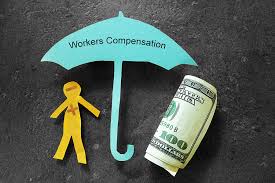
No, you do not get full pay on workers’ compensation. Instead, per the North Carolina Industrial Commission (NCIC), you are entitled to up to two-thirds of your average weekly earnings, up to a maximum – which changes each year.
You will start receiving this money after missing seven days of work. The first seven missed days are not compensable unless you end up missing more than 21 days of work. At that point, you will receive compensation for the first seven days as well.
What Goes into Workers’ Compensation Payments?
Workers’ compensation is designed to cover certain expenses and losses if you suffer a work-related injury or illness that prevents you from working or earning as much as you did prior to the medical event. As long as your health condition is recognized as being work-related, you may file for compensation based on the type and severity of your injuries.
Compensable monetary losses include:
- All necessary medical expenses
- Certain travel expenses related to getting medical treatment
- Two-thirds of your average weekly wage
Meanwhile, if you lose a loved one to a work-related accident or illness, you may also be eligible to collect death benefits.
Learn: Does Workers’ Compensation in North Carolina Cover a Worksite Death?
Compensation for Physical Injuries
In addition to receiving compensation for the money your injury cost you, you can also seek reimbursement for the injury itself, if it falls into a covered category. Based on the specifics of your case, you might be entitled to receive the following.
- Temporary Total Disability (TTD) benefits are for workers who cannot work at all and are recovering from their injury or illness.
- Temporary Partial Disability (TPD) benefits compensate workers for earnings they lost and continue to lose because of an inability to perform specific tasks.
- Permanent Disability benefits are for workers who suffer some form of permanent bodily injury or disability.
You can find the disability rating guide at G.S. § 97-31, which is part of the Workers’ Compensation Act. Different classes of injuries provide different levels of benefits. How long you may receive benefits will also differ based on the severity of your condition. For example, you could receive compensation for:
- Lost fingers or toes
- Amputated limbs
- Loss of sight or hearing
- Back injuries
- Injuries that disfigure the head or face
- Damage to the internal organs
What If I Go Back to Work?
Since you do not get full pay on workers’ compensation, you might be tempted to seek work elsewhere. While you are allowed to do this, it is important to remember that many types of workers’ compensation benefits are only available to those who are incapable of working. Seeking other employment may enable your employer’s insurer to argue that you are capable of working despite your injuries and thus do not need benefits.
For most workers, of course, the ultimate goal is to get well as soon as possible. Your medical provider will see you regularly until they decide that you have recovered enough to go back to work. At that point, your benefits will cease.
Personal Injury Lawyer Near Me (828) 286-3866
How Do I Qualify for Workers’ Compensation?
To be eligible for benefits, you must prove the type and extent of your physical impairment. You must also prove how your disability or condition prevents you from working in your old job or any job at all or earning as much as you did before the injury or illness. You can do this with:
- Medical records that connect the injury to your job
- Statements from experts, such as medical professionals, who can state that your injury was more likely than not the result of workplace conditions
- Statements from witnesses, such as your coworkers, who can testify about what happened or the hazards of your work environment
- Any available surveillance footage or other video footage that shows how the accident happened
- Photographs that you or others took of your injury or the workplace
Your employer and their insurance company will sort through the available evidence and determine if you qualify for workers’ compensation benefits. A medical professional can determine if you qualify to receive disability benefits.
What Are Work-Related Accidents?
Workers’ compensation is designed to cover most forms of work-related accidents and injuries, including:
- Electrocutions
- Being struck by objects or materials
- Getting stuck in or in between objects, materials, or machinery
- Abrasions and lacerations
- Bruises and contusions
- Blood loss and infections
- Toxic chemical exposure
- Exposure to extreme temperatures
- Chemical and thermal burns
- Respiratory and skin illnesses or injuries
- Cuts, broken bones, sprains, and strains
- Damage to the nerves, organs, and body tissues
- Eye, ear, and dental injuries
However, it should be noted that some types of injuries are more difficult to prove to the satisfaction of your employer’s insurer. You (or your lawyer, should you hire one) would need to collect compelling evidence to persuade them to pay compensation.
How to File for Workers’ Compensation
To file a workers’ compensation claim, you must:
- Be an eligible employee of an insured company
- Be employed by an eligible employer
- Have suffered a work-related accident, injury, or illness
- Meet the filing and reporting deadlines and the evidentiary requirements of the relevant insurers, your employer, and the NCIC
If you meet these criteria, you can file a claim by reporting your injury to your employer and seeking medical treatment. Most employers require you to file workers’ compensation injuries within 30 days of suffering or learning about an injury.
You may wish to speak with an attorney in case your claim is denied or you are unable to gather the evidence needed to connect your injuries to work-related tasks or duties.
Contact Farmer & Morris Law, PLLC Today
You do not get full pay on workers’ compensation. However, it is still an important source of income for injured workers who are unable to earn as much as they did before sustaining an injury or developing an illness. If you have any doubts or concerns about your case, contact Farmer & Morris Law, PLLC at (828) 286-3866. We can help you apply for benefits or file an appeal after a denial.








